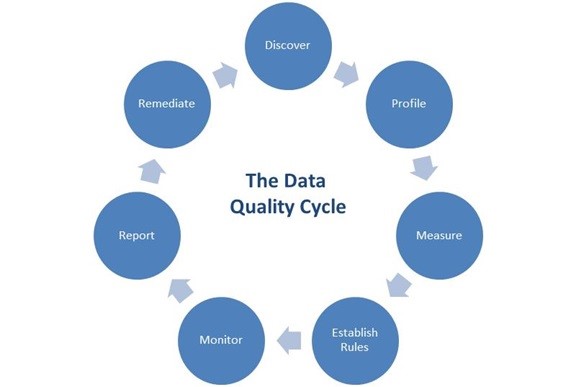The most critical aspect of a quality, long-term business relationship is maintaining trust
ASP to provide high quality care, we must first understand and respect our clients’ needs, attitudes and concerns. Each hospital and surgeon should be viewed from two perspectives; first, as a separate entity and second, as an integral member of an overall operating unit. This understanding is key to proactively bringing insights and services to them. They need to see ASP as a contributor to their success, never as the limiting factor.

Trust: Takes years to build, seconds to break, and forever to repair.
Each client – whether a facility or a surgeon – has different ideas of what the definition of quality is when it comes to the service we provide. It is affected by their standards and the demands placed upon them. In addition, relationships, resource skillsets, history of the service provided and, most importantly, the trust that is placed on the relationship are all factors. We need to focus on this perspective, as it will lead to improved client satisfaction, along with continued and increased use of our services. This concept is critical to understand, especially when we have embarked on a strategy of diversification to reduce our dependence on the ever-changing policies of third party payers. The clients who are the most engaged (and trust our current service offering) will be the ones that embrace our new services in the future.
The most critical aspect of a long-term business relationship is maintaining trust. Often it is more about the interpersonal interaction of the people involved than the service itself. A recent study found that successful firms selling professional services, such as ours, focus on the client’s definition of trust. This is totally consistent with the mission and vision of ASP.
This study identified 3 essential elements to build trust in the eyes of a client: (the three Cs)
- Candor – When marketing, know your limitations, be honest.
- Competence – Clients insist that the provided services are in line with their organization’s needs and that the services are delivered by resources with the right skill sets and knowledge to ensure a positive outcome.
- Concern – Clients want to know you not only understand their problems, but you empathize with the issues and problems they face. (Emotional Intelligence)

Concern for the client’s problems should be the primary factor driving any organization. When this element is questioned, the candor and competence are obviously compromised. The last thing we want is for a facility or a surgeon to see ASP as a transactional partner, and not one that is working with them to solve their problems consistently and reliably for the long-haul.
With that preamble, now we can position ourselves as the partner of choice when dealing with hospitals and surgeons. The answer is simple: to have a well-documented quality improvement program that is:
- Process-oriented, so it can be reproducible,
- Data-driven, so you can quantify inputs and outcomes,
- Measurable, so you can identify needed improvements and track results, and
- One where our assistants, staff and clients understand their roles and therefore are an interactive and critical part of the process.
Our quality improvement initiative was founded with these in mind; however, after 2 years, we are at a crossroads. Now we need to improve the process with our client’s needs in mind and take it to the next level.
We start by evaluating the purpose and the reason that our QI program was implemented before we can transition to the next phase:
- Improve patient outcomes
- Improve reliability, consistency and availability to our clients
- Enhance account management and communications
- Improve productivity
- Decrease costs

In other words, the focus is on shifting to a value-driven model from one that historically has been episodic. Performing a task in the absence of understanding how the outcome will support those that rely on our services is yesterday’s model. We must focus on not only what we do, but how we do it. Availability, attitude and responsibility are the drivers of a service organization that will outperform its competitors.
Every one of us should assist in identifying goals that provide more value to our customers and the methodologies and processes we can use to achieve these goals. We are all have a role to play in making incremental improvements in a way that:
- meets our client’s needs and solves their problem,
- increases our productivity,
- controls costs responsibly.
Then, we can market a synergized solution that combines all of the strengths of ASP to support our clients while improving the patient’s outcome. It will only be through this culture that we will expand and increase the trust and respect of our clients, while the results of our quality improvement program will demonstrate our commitment.

